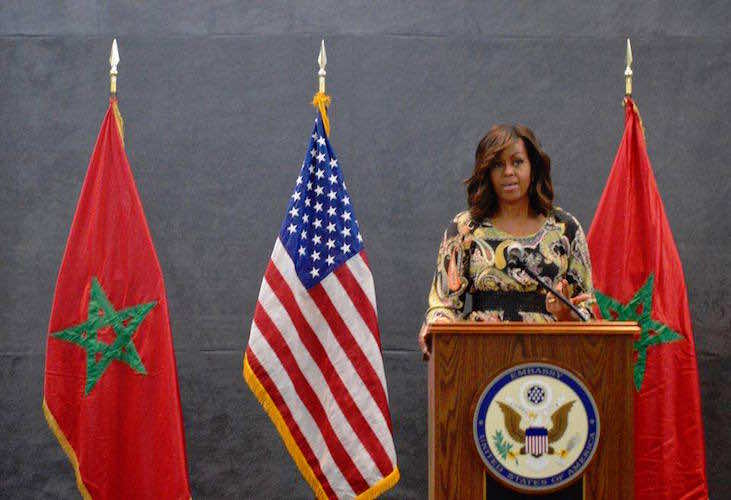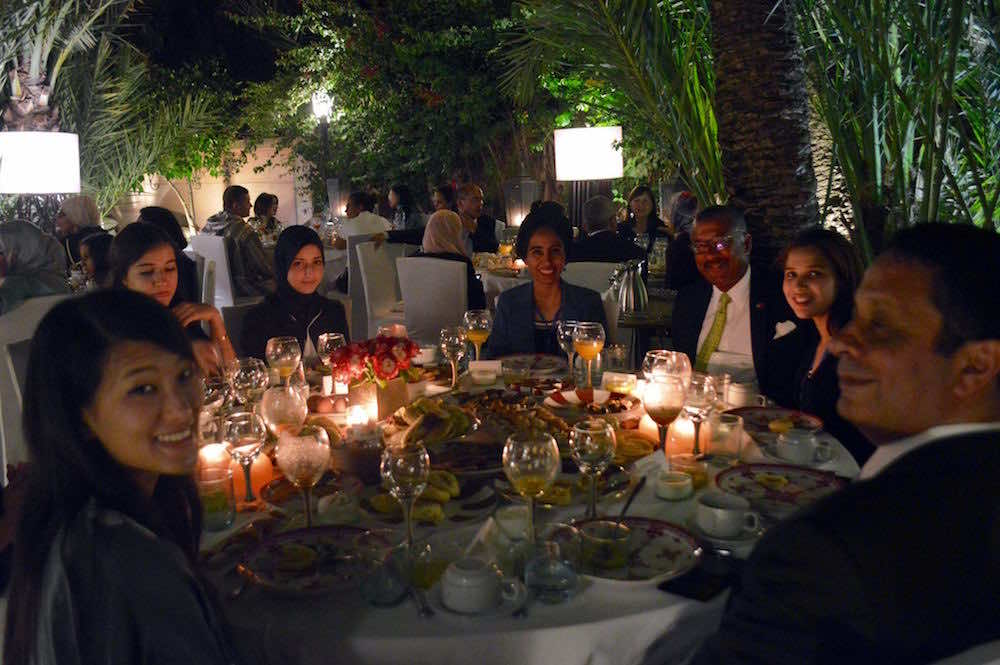
By Laila Ajrouh
Ifran - We spend most of our day at work; this is why changing the work environment into a happier living place has always been a great challenge for many organizations and institutions. Tremendous attempts have been made; however, we still witness disappointments and failures.
One of the key remedies acknowledged by consensus within almost all sectors to ameliorate this crucial problem is ethics.
The concept of Ethics in the workplace is becoming one of the most discussed topics in the 21 Century since work itself has great value to our lives. It plays a pivotal role in giving our lives meaning.
Indeed, all over the world and within many sectors there is a growing conviction that Ethics can improve the significance of work experiences. This can be achieved by promoting ethical valuesin the workplace by thinking beyond the self and company interest, implementing ethical standards and guidelines in decision making, and putting the collective interest and social welfare of all company employees, at all levels, at the top of the company priority list.
The company struggling to build an ethical culture by encouraging ethical values does not think only of making the best profit, but also considers making its employees feel that sense of belonging within its walls and care about their social wellbeing. This kind of principle is referred to as ethical leadership and is defined by Brown, Treviño, & Harrison as “the demonstration of normatively appropriate conduct through personal actions and interpersonal relationships, and the promotion of such conduct to followers through two-way communication, reinforcement, and decision making” (Brown Treviño, & Harrison, 2005, p. 120). Yes, this ethical guidance is mandatory to build trust and create an ethical work climate in which both the firm’s growth and social progress are promoted (see Brown et al., 2005).
When we talk about ethics in the workplace, we indirectly insinuate that four core characteristics should exist in an ethical leader to promote an ethical culture and collective interest at work. As defined by Brown et al. (2005), these are honesty, trustworthy, fairness, and caring.
When the work climate is ethical, and when the leader(s) is ethical, all employees will be pleased and inspired to behave ethically. They will be creative, they will take initiative, they will do their best to solve problems and participate in effective decision making. In such an ethical space all employees will have positive, and durable self-motivation to act and work with ethics, as well as to help the organization achieve its objectives and to fulfil its mission effectively and ethically at both internal and external levels.
To promote this ethical climate and to strengthen the ethical behavior in employees, leaders and/or managers should have the ability and the willingness to guide their employees. They can manage them not only as human resources but also as human beings and enrich their leadership style by acting morally, promoting morality, and emphasizing interest in their employees (Brown et al., 2005).
With this aim in mind, I believe that the best strategy for organizations to start with is to develop an ethical culture inside the company by implementing workshops and seminars to enable ethical self-development for all employees, including the top management. Furthermore, organizations should take into consideration the moral and ethical characteristics when hiring for key positions, and assess the ethical ability of its staff on a regular basis.
We all need leaders who show integrity, honesty, fairness, concern, respect, trust, and openness in their deeds and acts. We need those who believe in the golden rule of ethics that exists in all cultures: "Do unto others as you would have them do unto you.” In Buddhism, they believe to “Hurt not others with that which pains yourself”; Islam asserts that “No one of you is a believer until he loves for his neighbor what he loves for himself”, and Christians state that “Whatever you want men to do to you, do also to them””…etc.
In his book “Ethics 101: What Every Leader Needs to Know” (2003), John Maxwell said that “People say that they want integrity. But at the same time, ironically, studies indicate that the majority of people don’t always act with the kind of integrity they request from others,” and he insisted that all human beings want to be “valued, appreciated, trusted, respected, understood, and hate that others take advantage from them.” So let’s all make the golden rule our motto for life.
REFERENCES
Core Professional Values for the Teen Services Profession. (2015). Young Adult Library Services, 14(1), 4-6. Retrieved, April 29, 2016, from Academic Search Complete.
Geoffrey, S., Margaret M.M., & Caron M. (2015). The impact of the work environment on ethical decision making: Some Australian evidence. Journal of Business Ethics, 13 (5), 327-339. http://www.jstor.org/stable/25072537.
Hao, Z., Maozhu, J., & Qian, M. (2015). Remedy for work stress: The impact and mechanism of ethical leadership. Central European Journal Of Public Health, 23(2), 176-180. Retrieved, April 22, 2016, from Academic Search Complete.
John C. M. (2003). Ethics 101: What every leader needs to know. New York: Center Street.
Steenkamp, P. L. (2013). Protestant ethic: Contributing towards a meaningful workplace.
Hervormde Teologiese Studies, 69(1), 1-11. doi:10.4102/hts.v69i1.1315. Retrieved, April 1st, 2016, from Academic Search Complete.
Suk Bong, C., Ullah, S. E., & WON Jun, K. (2015). Ethical Leadership and followers ‘attitudes towards corporate social responsibility: The role of perceived ethical work climate. Social Behavior & Personality: An International Journal, 43(3), 353-365. doi:10.2224/sbp.2015.43.3.353. Retrieved, April 22, 2016, from Academic Search Complete.
Victor, B., & Cullen, J. B.. (1988). The Organizational Bases of Ethical Work Climates.
Administrative Science Quarterly, 33(1), 101–125. http://doi.org/10.2307/2392857
Layla Ajrouh is doctorate student, School of Humanities, Mouly Ismail University, Meknes, Morocco. She works at the Academic Affairs Department, AL Akhawayn University, Ifrane, Morocco.
© Morocco World News. All Rights Reserved. This material may not be published, rewritten or redistributed without permission.
The post Ethics in the Workplace appeared first on Morocco World News.



























